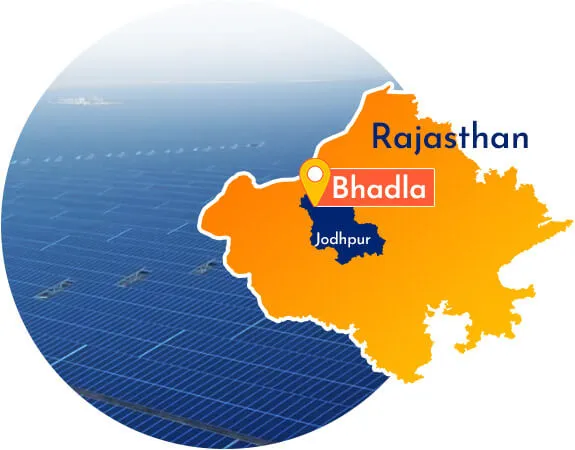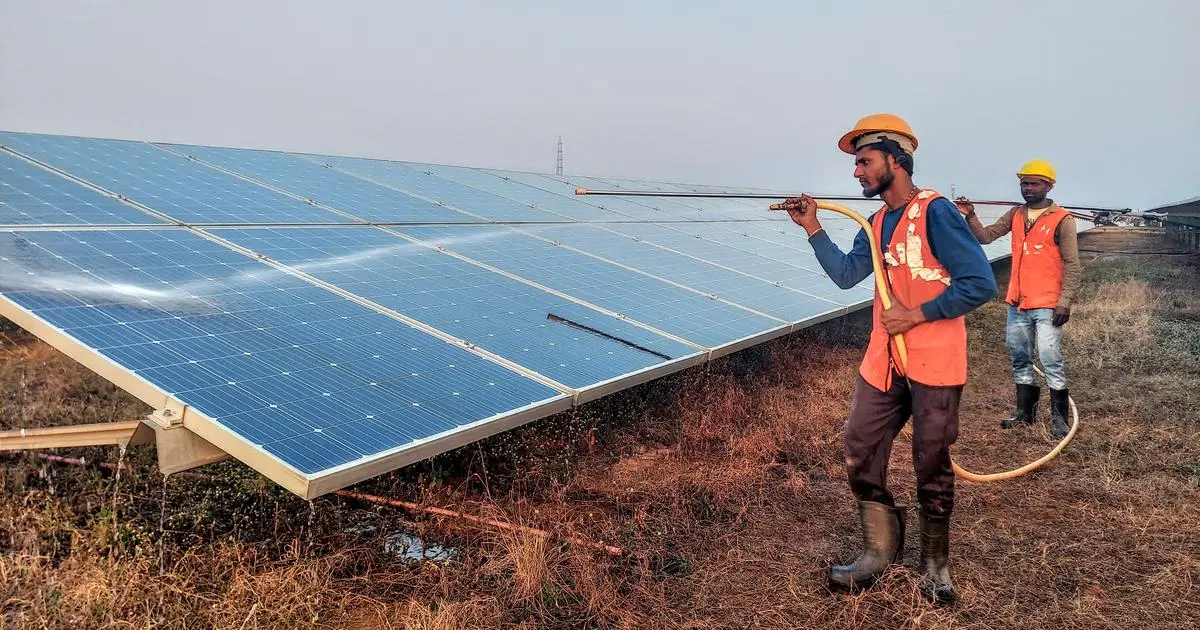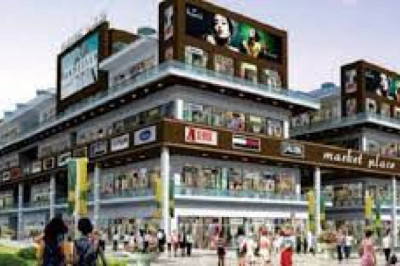views

Highlights
- According to Energy Economics and Financial Analysis (IEEFA), Bhadla Solar Park is currently the world's largest solar park constructed in Rajasthan, India.
- As of 2021, the park supplies power to more than 1.3 million households in Rajasthan. The park has also helped to create more than 2,000 jobs in the field.
- This multi-billion park is worth USD 1.4 Billion, with 10 million solar panels having a total capacity of 2245 MW.
- This project has employed more than 25,000 people and covers an area of 1400 acres.
Introduction
India has been making great strides in renewable energy, and the Bhadla Solar Power Plant is a shining example of this progress. With an installed capacity of 2,245 MW, it is the largest solar farm in the country and the world. Thanks to its impressive size, the Bhadla Solar Power Plant can produce enough electricity to power over 1.3 million homes. In addition, the plant has helped to create nearly 25,000 jobs, both direct and indirect.
The Bhadla Solar Power Plant is a vital part of India's commitment to reducing its carbon footprint and combating climate change. With this remarkable initiative, the country is now listed as one of the largest solar energy producers by the US-based Institute for Energy Economics and Financial Analysis (IEEFA) in its solar market report. It is clear that India is well on its way to becoming a world leader in renewable energy.
Background
The plant was built at the cost of INR. 14,000 crores and was completed in just 18 months. The plant has been acclaimed as an engineering marvel and testimony to India's national solar mission or commitment to clean energy.
The Bhadla Solar Park project is being developed under the Ministry of New & Renewable Energy (MNRE) scheme for developing solar parks and ultra-mega solar power projects. It is in line with the Rajasthan Solar Energy Policy 2011 and is considered one of the most important commissioned solar projects in Rajasthan.
Location

Source- Suryaurja
The park is located in Bhadla village, which is 220 kilometers away from Jodhpur on the Bap-Bhadla road. Rajasthan Renewable Energy Corporation (RREC) has allotted more than 5,700 hectares of land to execute the project in coordination with the state government.
Because of its climate, the location has been described as "nearly unlivable." Average temperatures in Bhadla range between 46 and 48 °C (115 and 118 °F), with regular hot winds and sand storms. The village of Bap is around 50 kilometers (31 miles) from Bhadla, while the nearest metropolitan region - a tehsil town named Phalodi - is about 80 kilometers (50 miles) distant.
Reasons to build Bhadla Solar Park.
The two main reasons to build the Bhadla Solar Park are:
The location factor
The park is situated in a desert area and receives very little rainfall. The average room temperature is also high, which makes it ideal for solar power generation. The park's location also makes it less likely to be affected by extreme weather conditions.
Mitigating Carbon Dioxide emission
The park has been designed to reduce carbon dioxide emissions. The solar farm is estimated to offset approximately 15 million tonnes of carbon dioxide over its lifetime. This is equivalent to planting 400,000 trees or taking three lakh cars off the road.
Other than these significant reasons, there are other essential factors in building the Bhadla Solar Park.
Rajasthan’s sunny climate
Rajasthan is a sunny state with high levels of solar insolation, and the state has large tracts of vacant land ideal for solar development. This Solar project also reduces the dependency on fossil fuels.
The state renewable energy policy
The state of Rajasthan is firmly committed to renewable energy and expects to generate 25% of its electricity from renewables by 2025.
Surplus electricity production
Given the low population density of Rajasthan, the solar project is expected to produce surplus energy. This energy can then be sold in the market through the well-connected power grid system.
The Bhadla Solar Park is vital to India's renewable energy objectives. The park has successfully achieved these objectives and has also generated significant revenue for the state government. In addition, the park has helped to increase the commercial viability of solar power in India and has spurred the development of other solar parks across the country.
Scope of Construction
The state government of Rajasthan has led the construction of a renewable energy project, Bhadla Solar Park, that was executed in four phases. Rajasthan Solar Park Development Company Limited (RSPDCL) developed the project's first two phases, with Saurya Urja Company of Rajasthan taking on phase three and Adani Enterprises Renewable Energy Park Rajasthan constructing phase four.
The Bhadla Solar Park had a total value of USD 1.4 billion. The solar power projects' developers are assigned by the National Thermal Power Corporation (NTPC) and the Solar Energy Corporation of India (SECI). Together with developers, the two institutions have inked a 25-year power purchase deal.
The construction started in July 2015 and was completed in 2020. The solar plant started operations in 2021 and is now fully operational.
The construction of Bhadla Solar Park has been done in 4 phases:
Phase One 2015-2018
The park's first phase started in 2015 and was completed in 2018. On completion, the solar installation reached a total capacity of 75 MW.
 Source: New Security Beat
Source: New Security Beat
Phase Two 2018-2019
Phase two, with a one-year construction timeline, has added 10 solar power plants with a total capacity of 680 MW.
Phase Three and Four 2019-2020
Phases three and four of the park, completed in 2020, each comprise 10 solar power plants with a combined capacity of 1,000 MW and 500 MW. The companies which participated in the construction of phase 3 & phase 4 are:
Companies |
Capacity |
|
Hero Future Energies |
300 MW |
|
Softbank Group |
200 MW |
|
ACME Solar |
200 MW |
|
SB Energy |
300 MW |
|
Azure Power |
200 MW |
|
ReNew Solar Power |
50 MW |
|
Phelan Energy Group |
50 MW |
|
Avada Power |
100 MW |
|
SB Energy |
100 MW |
Investors and Contractors
Several solar companies participated in the construction of this solar park. The Rajasthan Renewable Energy Transmission Investment Programme (RRETIP), coordinated by the Government of India, the Asian Development Bank (ADB), and the Clean Technology Fund, are the main parties for funding the construction of the USD 1.4 billion Bhadla Solar Park.
Vikram Solar was the EPC contractor for phase two of a 130 MW solar power facility.
Key Contractors
- Rays Power Experts provided engineering, procurement, and construction (EPC) services for the solar park's 140MW capacity development in phase two.
- In June 2018, Ecoppia inked a deal with SB Energy to deploy 2,000 robotic solar panel cleaning machines across five locations in stages three and four.
- In February 2018, Larsen & Toubro was awarded the contract to develop a 100MW solar power facility in phase three by SB Energy.
- During the project's development, technical help was provided by Meghraj Capital Advisors Private Limited, RangSutra, and Urmul Marusthali Bunkar Vikas Samiti.
- The Bhadla Solar Park is one of the largest solar parks in the world and has been fully operational since 2021, and it is helping to lessen India's reliance on imported fossil fuels.
Our Global Project & Tender Tracker can help you keep up with the most recent projects for opportunity identification and assist in getting construction leads for new projects. It helps you to identify and track ongoing & upcoming projects, tenders, and under construction projects in the power, oil and gas, infrastructure, construction, and industrial sectors. Book a Free Demo to know more and visit https://www.blackridgeresearch.com/.












